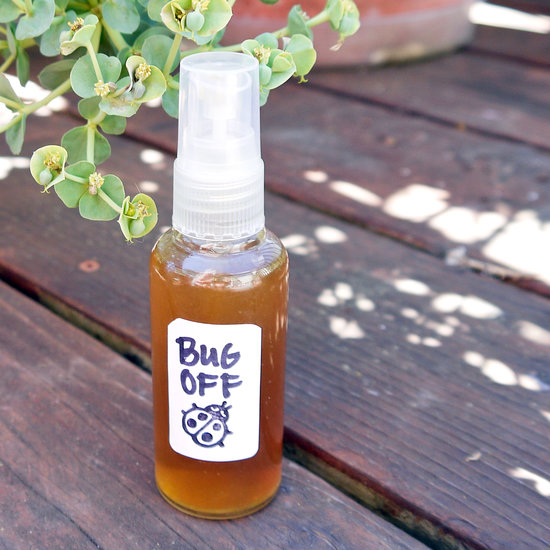Now in this short article, you will discover:
- Vetiver Oil’s Complex Composition.
- 5 Benefits of Vetiver Oil, including Anxiety Control, Lyme Prevention, ADHD Management, Bug Repellant, and Chemotherapy Relief.
- A Quick Word of Caution.
Don’t you have vetiver oil in your vital oil cabinet yet? If you’ve already started to use fresh, herbaceous oils like lemongrass, vetiver must be next on your list.
Vetiver Oil’s Complex Composition
Vetiver oil’s fresh, herbaceous scent and a few of its applications enhance its similarities to citronella and the like, though vetiver has lots of other residential or commercial properties that set it apart.
Vetiver is a lawn, not dissimilar to lemongrass and citronella. The root base– which is exactly what is distilled for essential oil– is thick and matted. While growing, it can maintain soil structure and lately, once it’s harvested, the root base is frequently utilized as a fragrant flooring mat, to name just one of a lot of uses.
In reality, vetiver is one of the more complex vital oils. As one analysis explained, vetiver essential oils (VEO) are essential raw active ingredients used in fragrance market, entering the formula of many modern-day perfumes. Vetiver oils are considered to be amongst the most complicated necessary oils, resulting the majority of the time in highly coeluted chromatograms whatever the analytical technique.
Vetiver’s intricacy leads to a wide variety of usages, while still keeping an enjoyable scent that the majority of the perfumes industry makes use of.
5 Benefits of Vetiver.
With such a diverse chemical composition, vetiver is poised to impact us in a range of ways. Inhaled and diffused applications are ideal, as well as diluted into topical blends. Here we bring some of the more outstanding methods to use vetiver:
1. Chemotherapy Relief.
Some early studies are exploring the capacity that the antioxidant levels in vetiver have to reduce the negative effects of chemotherapy. This hard route of cancer treatment is sometimes needed however constantly causes secondary damage. Scientist seem to be on the prowl for natural methods to combat this extremely unnatural treatment.
2. ADHD Management.
Like it or not, cases of ADHD are more popular than ever, and our kids require methods to cope and handle their symptoms in order to become productive grownups. Essential oils are portable, simple to use, and can be reliable for eliminating symptoms of ADHD and helping kids (or grownups!) to focus.
While we frequently think of lavender as a soothing oil, one study weighed the results of lavender, cedarwood, and vetiver oils on children with ADHD. The research study was small, however, the results were clear: vetiver was the greatest choice. This just study only asked parents to help their children smell the oil right from the bottle a couple of times diary. Off the record, mothers and fathers reported better attention and habits from their children during the study period.
3. Anxiety Control.
The direct results of aromatherapy inhalation on the limbic system (accountable for factor and choices, among other things) make it a perfectly matched remedy and tool for conditions like stress and anxiety, which can be a trigger for ADHD and similar issues.
We’re always delighted to see research validating actions, however when all you have to do is breathe in the aroma to check it for yourself, what have we got to lose? This was proved in 2015 in vitro study where the scientists compared the impacts of vetiver oil with diazepam, a frequently utilized stress, and anxiety prescription. Again, these initial outcomes show vetiver to be rather effective.
4. Lyme Prevention.
Lyme disease is an uncomfortable and hard to treat illness that spreads like wildfire in “tick season,” especially in the south of US. It’s hard to step outside without risking a tick bite. Some ticks bring Lyme disease from person to person, so their control is the first step in Lyme prevention and control.
To further complicate the problem, ticks have actually appeared to become resistant to much of our control procedures, in this sense, vetiver vital oil remains among the substances that can still impact ticks. Topical treatments as bug repellents are useful, in addition to sprays and treatments straight on surfaces where ticks might roam.
5. Bug Repellant.
Ground and surface treatments with vetiver oil are not only required for ticks, but potentially for termites and other types of bugs. In a research study of 7 necessary oils and their impacts on termites, vetiver “reduced termite tunneling activity at concentrations as low as 5 micrograms/g sand.”
Clove oil was also extremely efficient at both reducing tunneling and directly killing the termites. Together with tick prevention and elimination, vetiver flaunts its resemblances to citronella and lemongrass in bug repelling results. Treating susceptible surfaces with a mixed spray can be a quick, simple, non-toxic form of prevention.
A Quick Word of Caution
When we begin to find out about all the wide variety of usages that essential oils provide, it’s simple to wish to attempt each of them in every method possible. Luckily, this is neither necessary nor awfully advisable. There’s no necessity to aim to make a vital oil do more than it is known to do.
In a particular research study, vetiver was administered orally to mice who were also given a chemotherapy injection. Damage to DNA, kidneys, and marrow were slowed compared with those without the oil. Inhalation and topical usage of this strong antioxidant can be added to any important oil cancer procedure.
Vetiver oil is suggested in topical blends and dilutions, aroma sticks and personal inhalers, diffusion, and surface treatment mix for bug control.
Vetiver is one that we know to be utilized efficiently and thoroughly by means of topical and breathed in preparations. This exercises wonderfully, due to the fact that its internal use has actually been questioned for toxicity. Ultimately, the verdict was that low internal doses are fine. But when it comes down to it, the threat is hardly worth the benefit with other applications work simply great– even better.
Due to the fact that we know vetiver to be troublesome taken internally in vivo, this research study up until now can just point us to potential results that the oil has. Exactly what we understand of its anxiety relief can only help in a scenario that requires chemotherapy, too.



